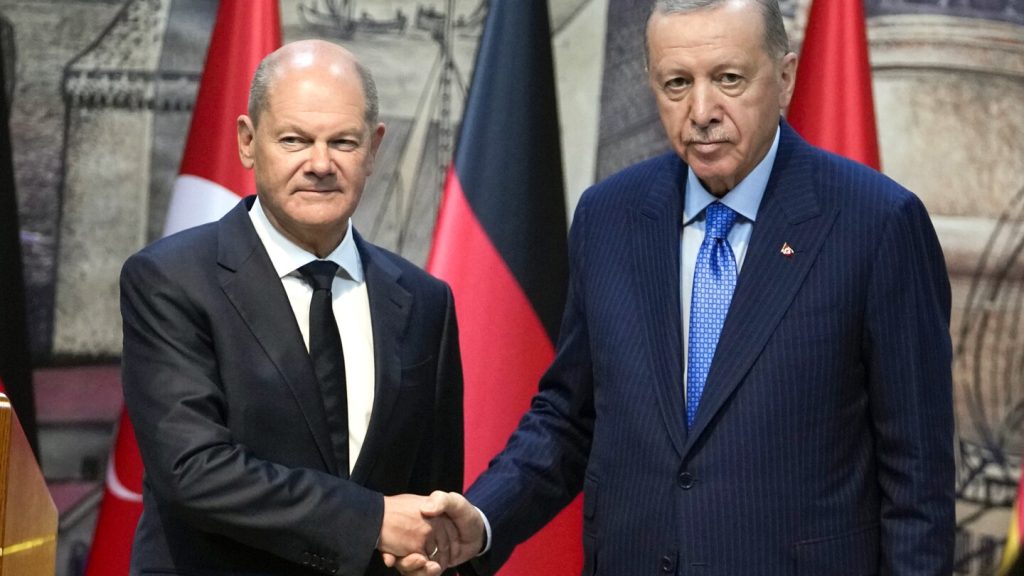The meeting between Turkish President Recep Tayyip Erdogan and German Chancellor Olaf Scholz in Istanbul centered around bilateral concerns and opportunities for cooperation. While the leaders discussed various issues, they couldn’t agree on their respective stances toward Israel. Erdogan criticized Israeli Prime Minister Benjamin Netanyahu and accused Western supporters of being complicit in the ongoing conflict. In contrast, Scholz defended Israel’s right to self-defense and rejected the labeling of the war in Gaza as genocide. Despite the disagreement on Israel, both leaders maintained a friendly tone during the news conference.
During the meeting, Turkey expressed its interest in procuring arms from Europe, particularly Eurofighter Typhoon jets. Scholz hinted at potential developments in this regard, emphasizing the importance of concrete deliveries involving NATO members like Turkey. The German government recently announced that it would allow arms exports to Turkey on a larger scale, with hundreds of millions of euros worth of permits issued this year. This marks a shift from the significant reduction in arms exports to Turkey following key events like the failed military coup in 2016 and the invasion of northern Syria.
While Turkey is focused on securing a defense deal with European partners, Scholz is seeking Turkey’s assistance in deporting rejected asylum-seekers and migrants. Germany has nearly 16,000 Turkish citizens who were required to leave the country by the end of September, as well as individuals who committed crimes and need to be deported to Afghanistan and Syria. The German government is reaching out to Turkey and other countries for support in carrying out these deportations. This aspect of the discussion underscores the complex nature of the bilateral relationship between Turkey and Germany, as they navigate issues related to migration and security.
The meeting between Erdogan and Scholz also highlighted the broader geopolitical dynamics at play in the region. Both leaders emphasized the need for humanitarian aid to Gaza, a commitment to a two-state solution, and a call for a cease-fire in the ongoing conflict. Despite their differences on how to address the situation in Israel, they maintained a dialogue on these critical issues. The meeting served as a reminder of the delicate balance that European countries like Germany must strike in their relationships with Turkey, particularly in the context of arms exports and migration policy.
As the meeting concluded, it became evident that while Erdogan and Scholz may not see eye to eye on all issues, their engagement signaled a willingness to find common ground and explore avenues for cooperation. The friendly tone of their interaction and the discussions on key topics like arms procurement and deportations underscored the importance of dialogue between Turkey and Germany. Moving forward, both countries will continue to navigate their complex relationship, balancing competing interests and priorities while seeking opportunities for collaboration in various fields. The meeting in Istanbul served as a platform for constructive engagement and a step towards enhancing bilateral ties between Turkey and Germany.


